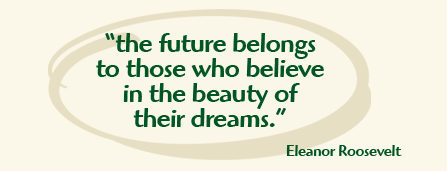With continuing volatility in the share market, many investors are looking for more secure investments. Whilst some shares occasionally outperform real estate, carefully selected residential property continues to be the safest form of investment in WA.
 What, where and how should you buy?
What, where and how should you buy? We’ve developed a few rules to guide you in your search for the right properties:
1) Buy local – when you live in an area you become familiar with values and local issues. You can identify properties that are overpriced and those that have genuine potential, you will be aware of new properties as soon as they come on to the market (and sometimes even before). We define "local" as being within 15 km of your home.
2) Aim for “average” priced properties – find out what the median price is in your suburb and only buy within about 25% of that price. I.e. If the median price is $500,000 look in the $450,000 to $550,000 range (preferably in the bottom end). The median price represents the middle price and to buy way above or below this price puts you into a higher risk category. Additionally it is easier to loosely track the value of your investment by referring to the Valuer Generals’ figures for each suburb (published quarterly by the weekend newspapers).
3) Do your homework – don’t rely on others to provide you with advice on market value. It’s your money and the profit (or loss) will be yours and yours alone. Compare properties for sale with others that have sold recently taking into consideration size, construction, location, condition, aspect, age and features.
4) Rentability – keep up to date with rental values and vacancy rates by scanning the To Let section of the local newspaper. If similar properties are advertised week after week perhaps the demand for rentals is low or the asking rent is too high.
5) Return – calculate the estimated annual return based on the approximate rental and a reasonable purchase price.
e.g. you are considering making an offer on a property at $400,000. you estimate the weekly rent to be around $250, multiplied by 52 weeks less the expected vacancy time (say two weeks) equals $12,500 annual rent. This works out at 3.125% return on the value of your investment i.e. $12,500 divided by $400,000 = 3.125%
As a guide, you should be looking for a return of 3-6% per annum, but remember the golden rule - The higher the return the greater the risk! As your rental value increases, your return on investment will increase.
6) Age – the newer the home the less maintenance you should have. However, beware of cheap constructions that will provide you with ongoing problems. If you have any doubt about the structural integrity of the property get a qualified builder to check it out for you.
7) Look for development potential – but be careful. Properties with development potential often catch out unwary buyers – do your homework and make sure that you have the financial capability to realize the full potential or leave it alone.
8) Use professional property management – whilst we have a vested interest in this area we cannot stress enough the importance of having your investments managed by a competent professional. Too often we see landlords losing money because of poor tenant selection, inadequate record keeping, insufficient knowledge of rights and obligations or lax property inspections. With efficient management you can enhance the value of your investment, with poor property management you can lose thousands of dollars and create endless problems for yourself.
9) Invest conservatively – Negative gearing is fine if you are in the top tax bracket and can afford to carry a loss on a property for a number of years but most people are better off by investing a healthy amount (say 20%) and then allowing the tenant to pay off the mortgage gradually. Later on you can use the equity in your first property to buy the second and so on.
10) Buy, don’t sell – remember the object of investing is to accumulate income producing assets. Before you decide to sell these assets you should consider whether the replacement is a better income producing asset. Selling an investment property or shares to have a holiday in Switzerland is not smart wealth creation (and you are likely to return home to a tax bill). Give your assets time to accumulate before you start spending the proceeds.